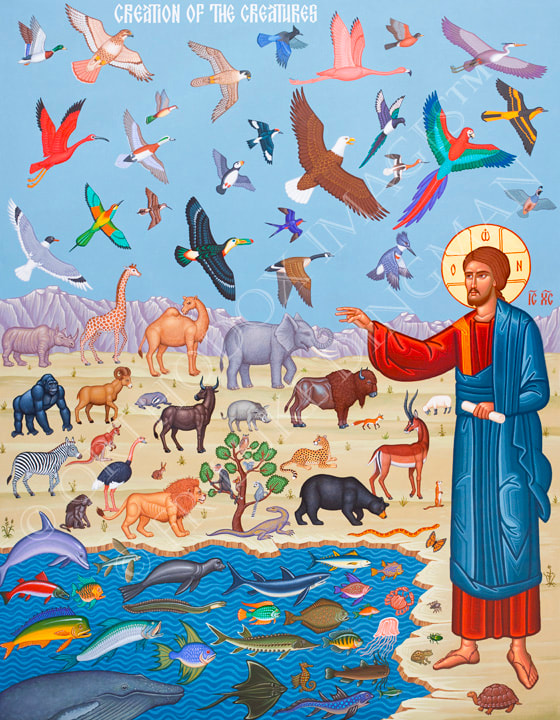|
“In the beginning there was the Word, and the Word was with God, and the Word was God” (John 1:1). Thus history as we know it today started with the Father, the co-eternal Son and the Holy Spirit, who proceeds from the Father. One might ask what Christian theology has to do with a history of the time before the Incarnation. However, in order to understand why Christ came and why the One, Holy, Catholic and Apostolic Church was created, it is necessary to first examine the events which led to and underpin its creation. This article is the first in a series which will examine the creation of the necessary preconditions, both historical and philosophical, which led up to the Incarnation of Christ. We started by reflecting on the three persons of God, who existed outside of and above all time and space. God alone is uncreated, everything else including both time and space are created by God. St John of Damascus writes that “Before the world was formed, when there was as yet no sun dividing day from night, there was not an age such as could be measured” (Exposition of the Orthodox Faith, Book 2 Ch 1).
Once the process of Creation had started and before the making of the visible world, the invisible world was created with the nine ranks of invisible hosts. The tenth rank, signifying completeness in the Hebrew tradition, is reserved for humans who achieve theosis. It must be said here that God knows everything that is yet to happen, and knew that humanity would be made. These angels possessed free will and never experience death. The consequence of that free will was the rebellion of Lucifer (Satan) and many other angels. Christ saw this fall from heaven like lightning (Luke 10:18; Isaiah 14:12) after Satan’s fall into pride. He said arrogantly “I will ascend to the heavens; I will raise my throne above the stars of God; I will sit enthroned on the mount of assembly, on the utmost heights of Mount Zaphon. I will ascend above the tops of the clouds; I will make myself like the Most High.” (Isaiah 14:13-14). After this rebellion, these incorporeal beings had made their choices for all eternity (St John of Damascus, Exposition of the Orthodox Faith, Book 2 Ch 30). They are either angels on the side of light or demons on the side of darkness. The next stage in history was the creation of humanity. This occurred on the sixth day of Creation after world as we know it today was made (Genesis 1). Contrary to many interpretations held by some Protestants, the Orthodox have acknowledged that this story is not to be taken as historical fact but rather as true but not literal. We remember that Adam was made from dust with the “breath of life”, also translated “Spirit of life” (Genesis 2:7), and that Eve was made from the rib of Adam (Genesis 2:22). These humans too possessed free will, and fell as a result of temptation (Genesis 3:1-7). Note that the temptation employed by the serpent, understood by the Church Fathers to be Satan, is the same one which caused Satan himself to fall. Eve too fell victim to wanting to “be like God” (Genesis 3:5), and Adam too fell alongside Eve. The result was the expulsion from paradise, loss of purity and loss of the vision of God, with Christ no longer visibly walking with us as He had with Adam and Eve. In concluding this extremely brief introduction to history and miniscule summary of an unknowable number of years, we must yet again remember that God, knowing all things before they happen, knew that humanity might fall (St John of Damascus, Exposition of the Orthodox Faith, Book 2 Ch 30). And yet humanity had a choice, as many of the Fathers explain. As St Maximos the Confessor said, “We do not directly control whether blessings will be showered upon us or chastisements will befall us, but our good and evil deeds most certainly depend on our will.” Another statement of St Maximos the Confessor, with which St Isaac the Syrian agreed, was that even if Adam had not fallen, Christ out of His great love for humanity would still have become incarnate (Metropolitan Kallistos Ware, The Orthodox Church). That love was still one of the reasons for the Incarnation, but added to that by the Fall of Man was the purpose of securing the salvation of humanity by “destroy[ing] the power of death” and “bestowing resurrection to the fallen” (both Kontakion of Pascha: Tone 8).
0 Comments
Leave a Reply. |
Categories
All
|

 RSS Feed
RSS Feed
